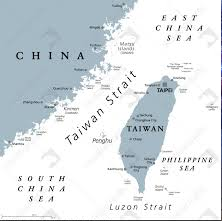
Arquivo para November, 2024
Other cancellations and joy
Not only are there cancellations of identities and ethnicities, there are also cancellations aimed at policies that eliminate fraternity, solidarity and love.
and ethnicities, there are also cancellations aimed at policies that eliminate fraternity, solidarity and love.
Edgar Morin wrote about “salvation”: “Life, consciousness, love, truth and beauty are ephemeral. These marvelous emergencies presuppose organizations of organizations, unusual opportunities, and they run mortal risks all the time. For us, they are fundamental, but they have no foundation” (Morin, 2003, p. 164).
This type of cancellation is not only the most dangerous, it is itself a cancellation of the possibility of good news: “Love and conscience will die. Nothing will escape death. There is no salvation in the sense of the religions of salvation that promise personal immortality. There is no earthly salvation, as promised by the communist religion, that is, a social solution in which everyone’s life would be free from misfortune, chance and tragedy. This salvation must be radically and definitively renounced” (Morin, 2003, p. 164).
Morin quotes another author who is fundamental to his argument: “As Gadamer says, it is necessary to ‘stop thinking of finitude as the limitation in which our infinite will-to-be fails, (but) to know finitude positively as the true fundamental law of dasein’. The true infinite is beyond reason of intelligibility, of the powers of man” (Morin, 2003, p. 164).
How is this beyond finitude can be written according to the author: “The gospel of lost men and the Fatherland tells us: let us be brothers, not because we will be saved, but because we are lost*. Let us be brothers in order to live authentically our community of earthly life and death destiny. Let us be brothers, because we are in solidarity with each other in the unknown adventure” (Morin, 2003, p. 166), and explains in a footnote (*):
*In fact, the idea of salvation born of the refusal of perdition carried within it the repressed awareness of perdition. Every religion of life after death carried within it the repressed awareness of the irreparability of death.
He quotes Albert Cohen to explain: “That this astonishing adventure of humans who arrive, laugh, move, then suddenly stop moving, that this catastrophe that awaits them does not make us tender and compassionate towards one another, this is unbelievable” (Cohen, apud Morin, 2003, pgs. 166-167).
This is his call for fraternity: “The call for fraternity is not confined to one race, one class, one elite, one nation. It comes from those who, wherever they are, hear it within themselves, and it is addressed to each and every one. Everywhere, in every class, in every nation, there are beings of ‘good will’ who convey this message” (Morin, 2003, p. 167).
MORIN, E. e Kern, Anne-Brigitte. Terra-Pátria, trad. por Paulo Azevedo Neves da Silva. — Porto Alegre: Sulina, 2003.
Beyond pain and agony
Both personal and humanitarian crises must bring about a new dawn and a greater glory than the civilizing process has allowed.
about a new dawn and a greater glory than the civilizing process has allowed.
Edgar Morin, when analyzing the polycrisis we are experiencing, makes an analysis of a certain agony:
“If we consider globally the two critical cyclones of the world wars of the twentieth century and the unknown cyclone in formation, if we consider the mortal threats to humanity coming from humanity itself, if we consider finally and above all the current situation of entangled and inseparable polycrises, then the planetary crisis of a humanity still incapable of realizing itself as humanity can be called agony, that is, a tragic and uncertain state in which the symptoms of death and birth struggle and confuse each other” (Morin, 2003, p. 97).
And he concludes: “A dead past does not die, a nascent future cannot be born” (idem).
He seeks to save here what is beyond these pains and difficulties: “There is a global advance of blind forces, of positive feedback, of suicidal madness, but there is also a globalization of the demand for peace, democracy, freedom, tolerance…” (Morin, idem) maintaining hope.
But the scenario was already difficult when he wrote the book: “The struggle between the forces of integration and those of disintegration is not only located in relations between societies, nations, ethnicities, religions, it is also located within each society, within each individual” (idem) it is an inner struggle…” (idem).
Are we doomed to this,” he writes: ”Are we hopelessly compromised in the race towards generalized cataclysm? From which birth do we hope to emerge? Or will we continue, by leaps and bounds, towards a planetary Middle Ages of regional conflicts, successive crises, disorders, regressions – with only a few islets preserved?” (p. 98).
This way out is the rediscovery of our earthly purposes, which is the subject of the following pages and which we have already touched on, this path requires reflection and a return to balance and peace.
MORIN, E. and Kern, Anne-Brigitte. (2003) Terra-Pátria, transl. by Paulo Azevedo Neves da Silva. Brazil, Porto Alegre: Sulina.
A new meta-development
We see living as an intense life of action, pleasure and disregard for the true joy of living, that joy and peace that only caring hearts can feel.
and disregard for the true joy of living, that joy and peace that only caring hearts can feel.
Edgar Morin wrote about meta-development:
“Development is a goal, but it must cease to be a short-sighted goal or an end-goal. The goal of development is itself subject to other goals. Which ones? To live truly. To live better.
Truly and better, what does that mean?
To live with understanding, solidarity and compassion. To live without being exploited, insulted, despised” (Morin, 2003, p. 106).
This must be extended to all peoples, religions and cultures on the planet; there will be no true civilizing process, justice and freedom without these values, dear conquests of humanity.
Not only Edgar Morin dreamed of a planetary citizenship, all true dreamers and humanists have dreamed of it, although some limit themselves to looking at the failures, the full life and freedom that does not ignore the rights of others is the only one capable of leading to a new moment.
Perhaps wars and all the evils they involve: economic, political and even religious struggles (a true religion would never contemplate the slightest violence against life). Above all, we must resist and hope that a new future can come, perhaps with the current suffering, I would say a “violent passion” in planetary life with threats and wars.
To what kind of regression, a true barbarism, we are heading, I have already perceived Morin’s genius and sagacity, of the double barbarism: “It is true that at all times, in all places, humanity has been faced with the need to resist diffuse cruelty made up of malice, contempt, indifference. The two present barbarisms are formidable developments of cruelty: hateful cruelty comes from the first barbarism and is expressed in murder, torture, individual and collective punctures; anonymous cruelty comes from techno-bureaucratic barbarism” (Morin, 2003, p. 100).
Morin noticed the backlash after the spring experienced in 1989-1990, when the walls came down, and now they are rising again.
MORIN, E. and Kern, Anne-Brigitte. (2003) Terra-Pátria, transl. by Paulo Azevedo Neves da Silva. Brazil, Porto Alegre: Sulina.
Provocations, threats and hopes
Wars continue to threaten world peace, and the great powers are crucially involved in making this happen. There are no peaceful or humanitarian speeches, the forces involved are casting a great shadow over all of humanity: a global war.
great powers are crucially involved in making this happen. There are no peaceful or humanitarian speeches, the forces involved are casting a great shadow over all of humanity: a global war.
The former Russian president and current vice-president of the Russian Security Council, Dmitri Medvedev, in an interview with the RT news agency declared: “The United States is wrong to think that Russia will never cross a certain line when it comes to using nuclear weapons” and indeed Russia has carried out military exercises in this direction, but in other speeches the former Russian president always recognizes that it would be an unprecedented disaster.
Another pole of tension is a direct confrontation between Iran and Israel, aggravated by recent attacks and retaliation between the two nations. Iranian President Ali Khamenei declared: “The enemies, both the US and the Zionist regime [Israel], must know that they will certainly receive a devastating response for what they are doing against Iran and the resistance front,” referring to groups allied to Iran, including Hamas and Hezbollah.
China is also carrying out military exercises around the island of Taiwan, on Sunday (04/11) 35 drones crossed the dividing line between the two countries in the Taiwan Strait, which only maintained the readiness of its defense service, since no attacks were carried out.
There is always hope for peace and that leaders understand the number of victims, injustices and scourges that wars bring, peace is a condition of civilization for all.
Querela pacis and the true life of peace
Although a philosopher with many limitations, Erasmus of Rotterdam, more than 500 years ago, wrote Querela Pacis, a lament for Peace, which spoke in the first person about Peace and said “peace always needs someone to give it a voice”, it is rather an attitude from within the Being.
Erasmus of Rotterdam, more than 500 years ago, wrote Querela Pacis, a lament for Peace, which spoke in the first person about Peace and said “peace always needs someone to give it a voice”, it is rather an attitude from within the Being.
Byung-Chul Han’s texts, three of which I would highlight: The Society of Tiredness, The Crisis of Narrative and Vita Contemplativa, may seem alienating in a world on the brink of war, but it is a text that also points to this path, an inner peace that gives voice to the world of pure externality.
He says in The Crisis of Narrative: “Philosophy as ‘poetry’ (mythos) is a risk, a beautiful risk. It narrates, even dares, a new way of living and being” (Han, 2023, p. 106), italic highlights by the author, he even points to the Enlightenment and Kant’s conception of the soul as ‘daring’, but they are narratives and later recalls that Nietzsche points to a ‘transnarrated’ world.
It is from this author that he points to a world where “a narrative of the future, based on a ‘hope’, on a ‘faith’ in tomorrow and the day after tomorrow” (Han, 2023, p. 108) is the same one that the author points to in another text as the “already” but not “yet”.
What has happened to philosophy today, and this has spilled over to the other sciences, is that “the moment philosophy claims to be a science, to be an exact science, its decline begins. Philosophy as a science denies its imaginary narrative character” (p. 108).
As the author says, “it deprives itself of its language. It becomes mute” (idem), exhausted in the administration of history, and incapable of narrating (p. 109), hence all the modern narratives.
Then the author points to narration as a cure, from pages 111 to 129, to end in the next chapter “the narrative community”, which recovers the ability to narrate and imagines “a world family” (p. 125), beyond nation and identity, the desired peace.
The pax romana and even eternal peace (Kant) do not leave the confines of personal narratives or group-restricted identity; this narration of the citizen of the world must come from voices that have the capacity to see humanity as a family, as a whole in diversity.
This is the paradigm of complexity developed in this week’s posts: “the individual lives in the whole and the whole in the individual. It is through poetry that the highest sympathy and coactivity originate, from the most intimate community” (Han, p. 125, recalling a text from Schriften Novalis), this peace comes from the inner voice, but points to the collective, to humanity.
It is this beatific, divine and true peace that can give voice to effective and lasting peace.
Han, Byung-Chul. (2023) A crise da narração. Transl. Daniel Guilhermino. Brazil, Petrópolis: Vozes.

